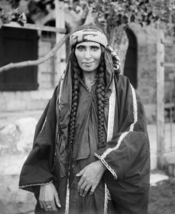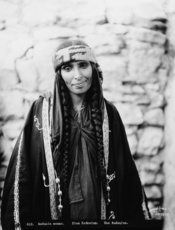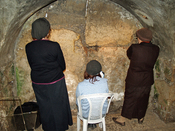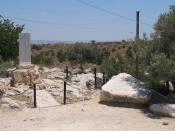"Modesty" This book is an excellent enthnography. The author's ability to see beyond the stereotypes and catch-phrases surrounding "veiled" women is astounding. Abu-Lughod recognized "two contradictory discourses" (p.10) that informed the sentiments and experiences of the Awlad Ali Bedouin: "an ideology of honor in ordinary conversation and everyday behavior" is one of them. The ideology of honor is itself divorced into two separate but related discourses. The discourse of honor (pursued by men) is keyed to autonomy, independence, generosity, "tough assertiveness, fearlessness, and pride" (p.87), and self-mastery, including physical stoicism and the capacity to resist/ignore women. These attributes of honor are, in turn, related to the development of wisdom or reason or, more specifically, the ability "to distinguish social contexts and to use appropriate cultural forms to express"æsentiments" [p.246 ]. The discourse of modesty, hasham (pursued by women), is keyed to voluntary deference, shame, and avoidance. Its most visible act, veiling, dicates that modest behavior, for women, is essentially a sociopolitical matter since women veil only before fathers, elder uncles, elder male cousins, and not before younger brothers, cousins, i.e.,
only before men who exercise authority over them. Abu-Lughod's discussion of the way in which women's modes of power work outside of the more studied realms reveals that resistance has a history and discourse on its own. This book is definitely an excellent answer to those who want to view Islamic women as voiceless. And though the author attempts to show aspects of silence and veiling as manifestations of cultural distinction and identity, she is also quick to note in later chapters that it is Western influences that manage to increasingly isolate the veiled woman and reduce her realm of influence.
1. Abu-Lughod, Lila. Veiled Sentiments. 1986.
2. Ahearn, Laura. Writing Women's Worlds: Bedouin stories. 1996.
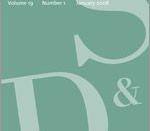
![[Medal of Honor] (LOC)](https://s.writework.com/uploads/13/138975/medal-honor-loc-thumb.jpg)
